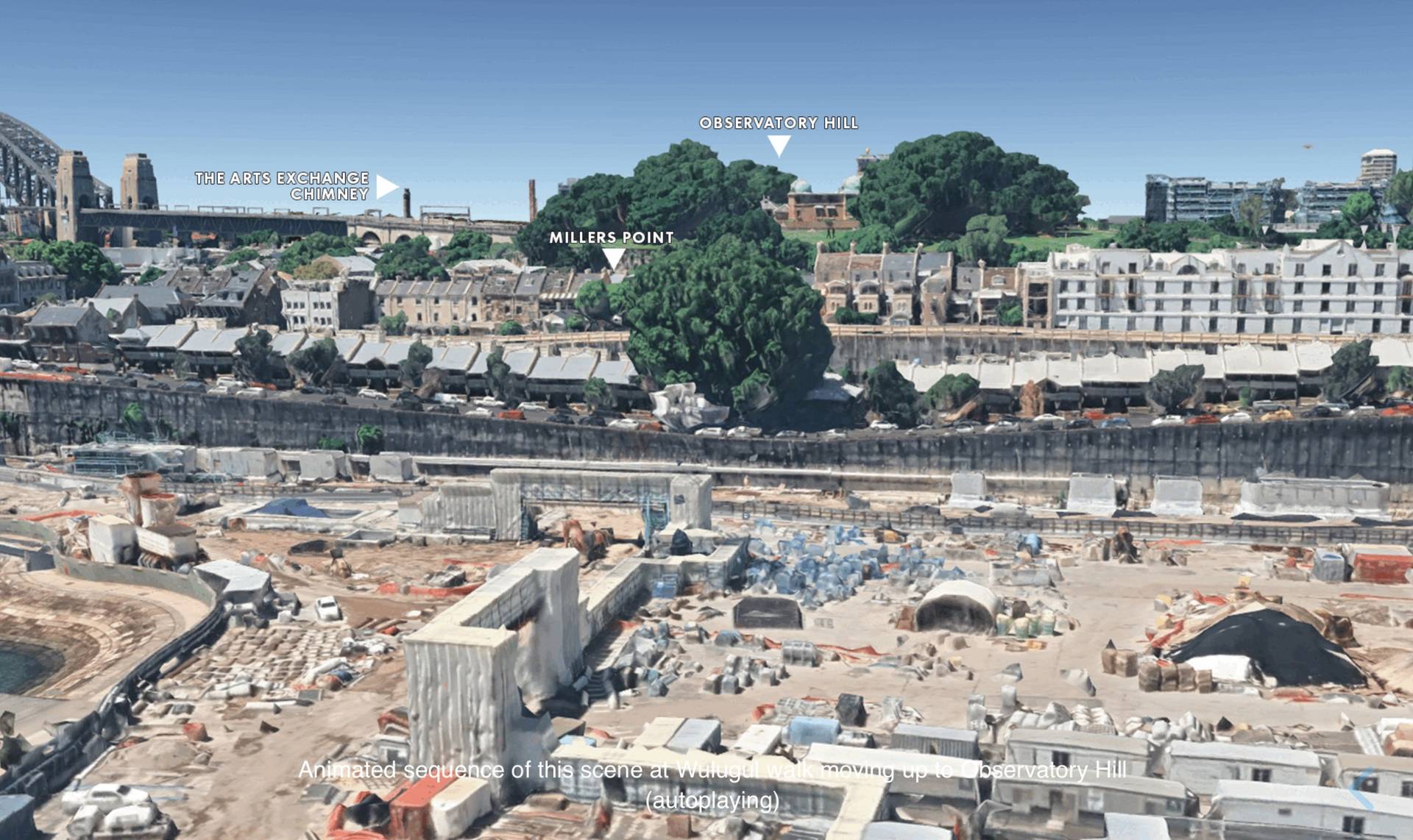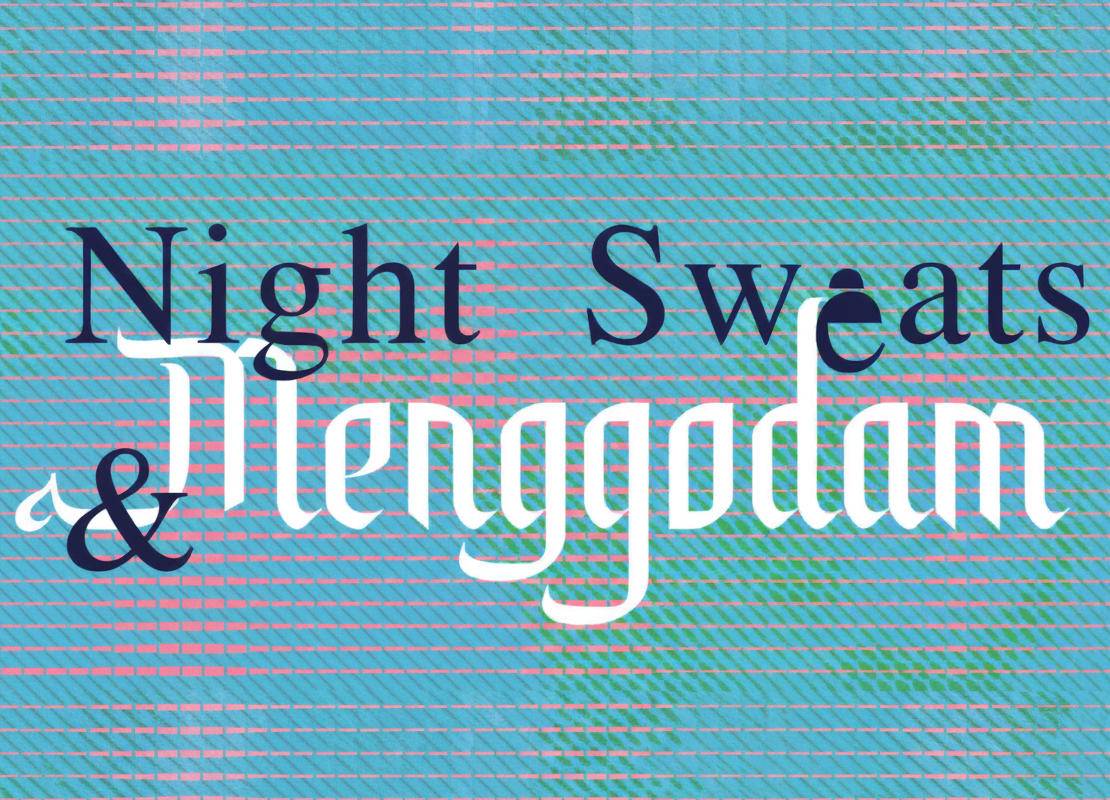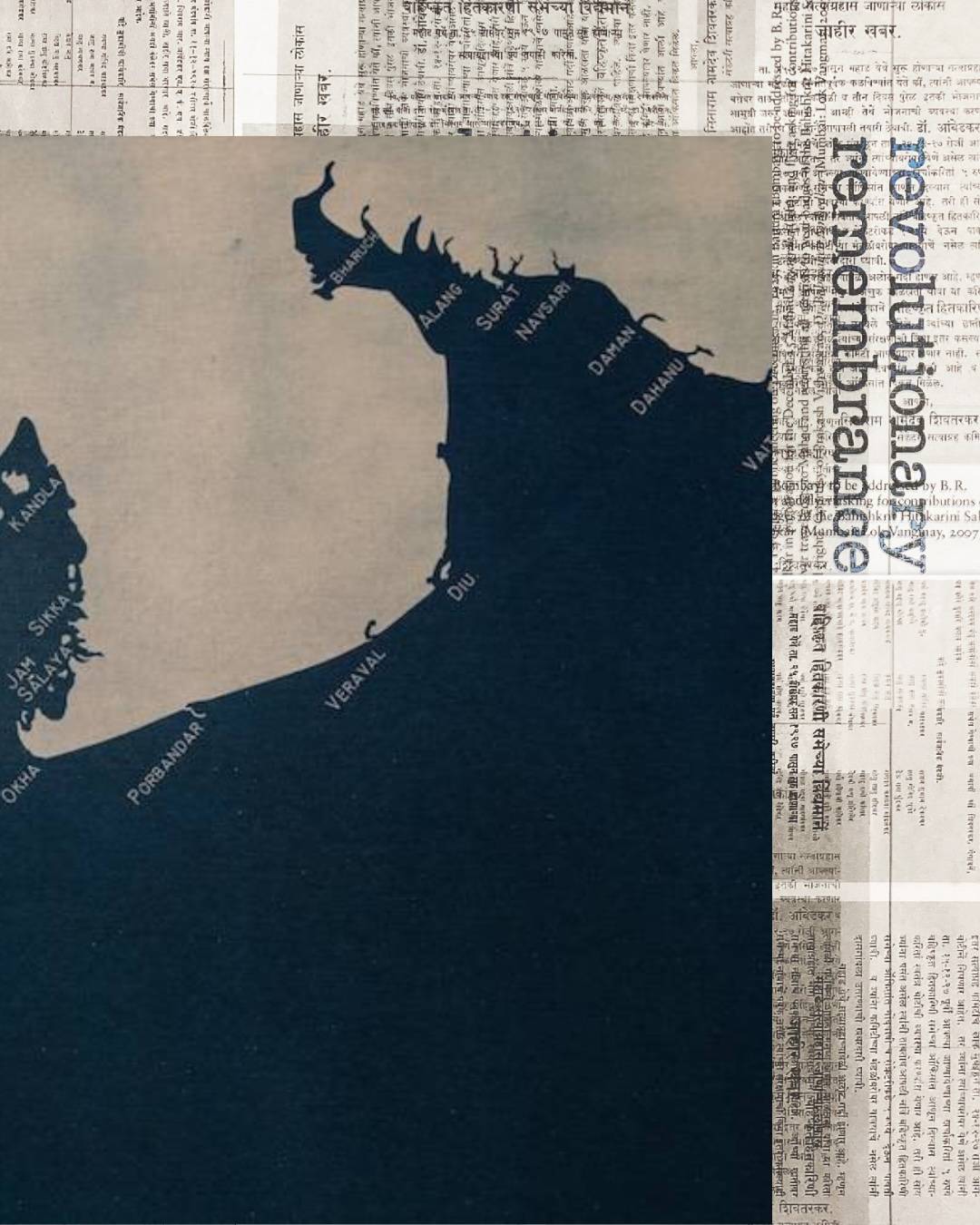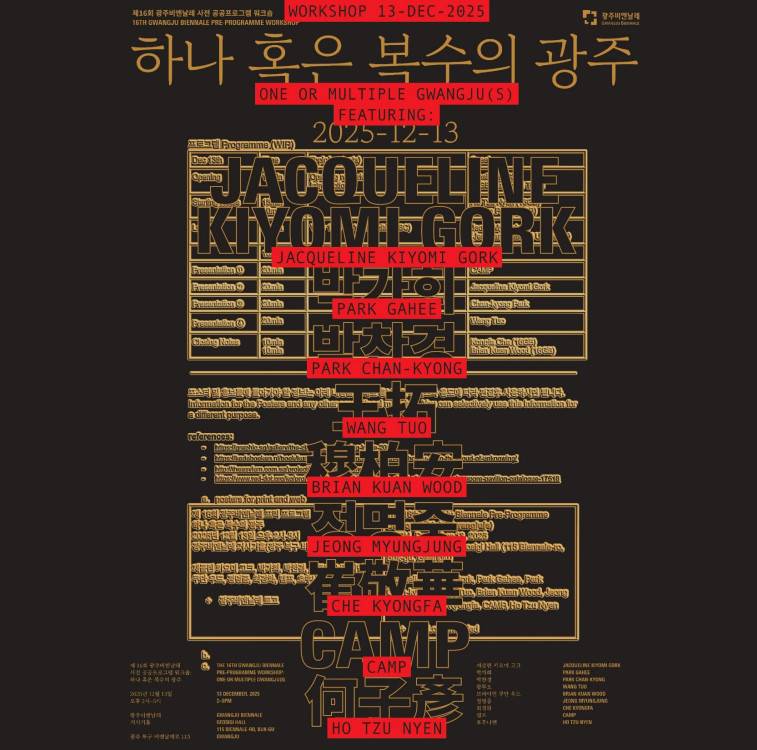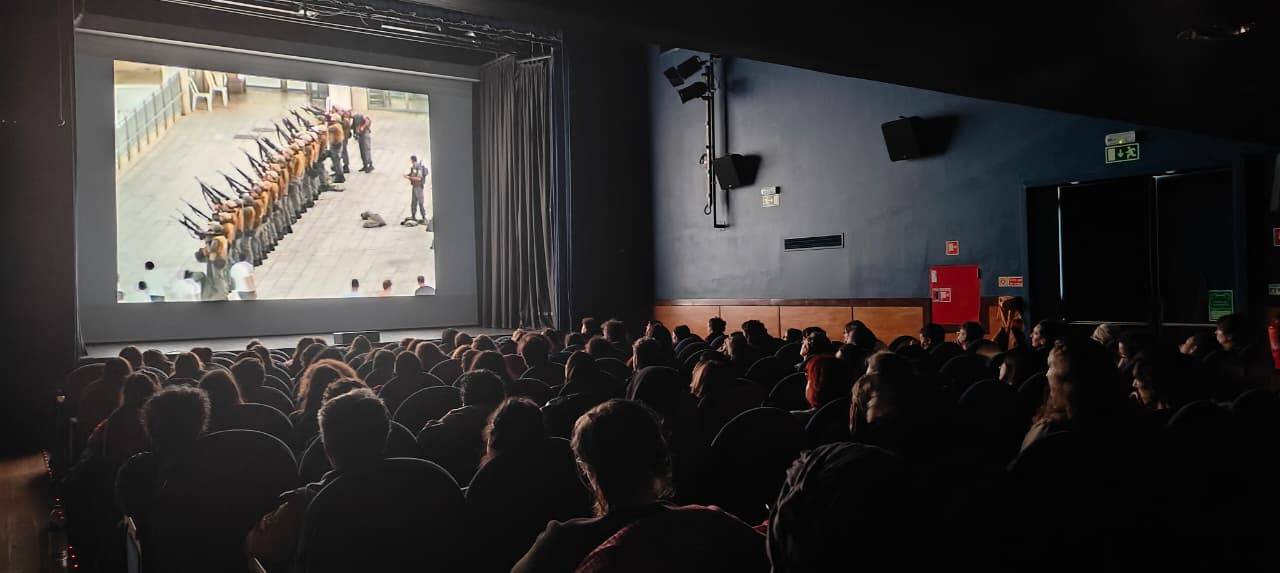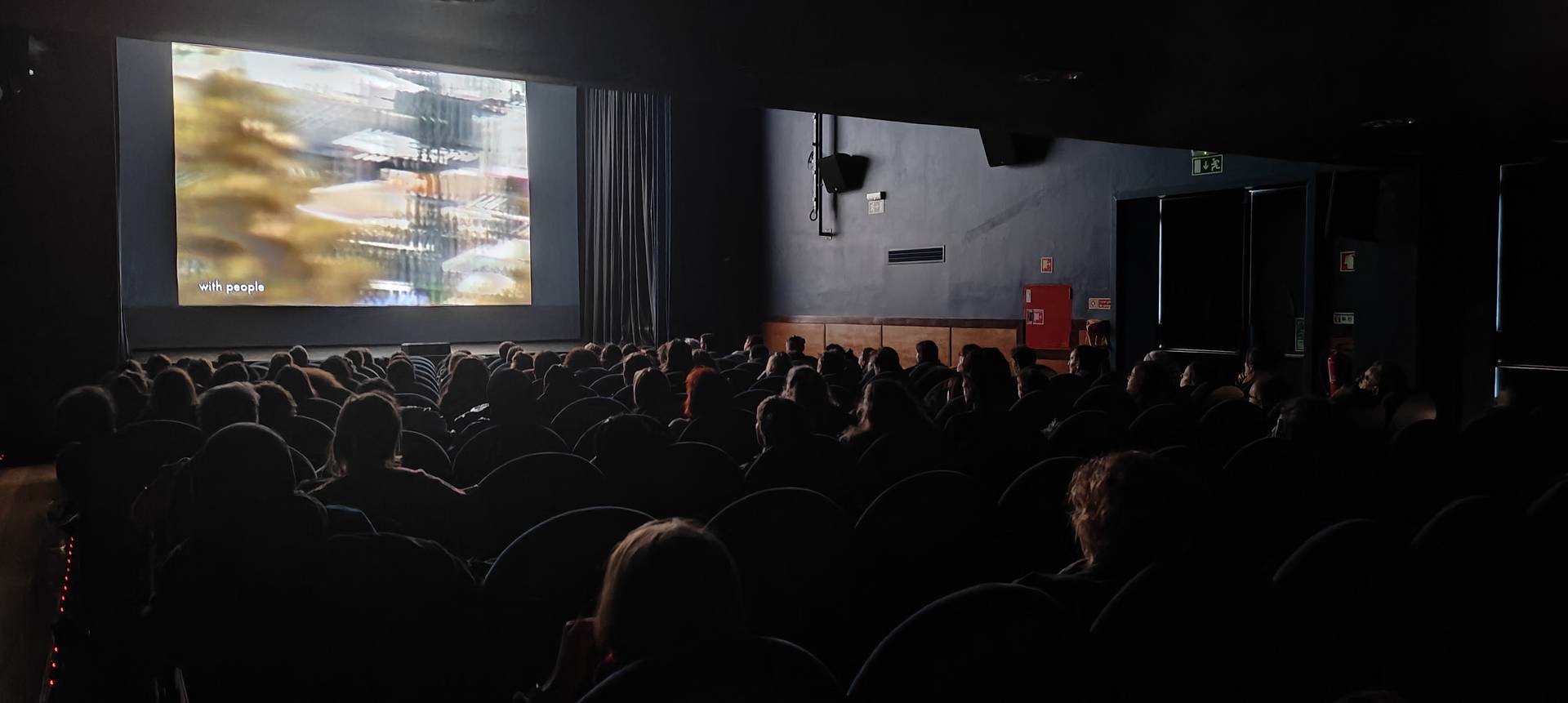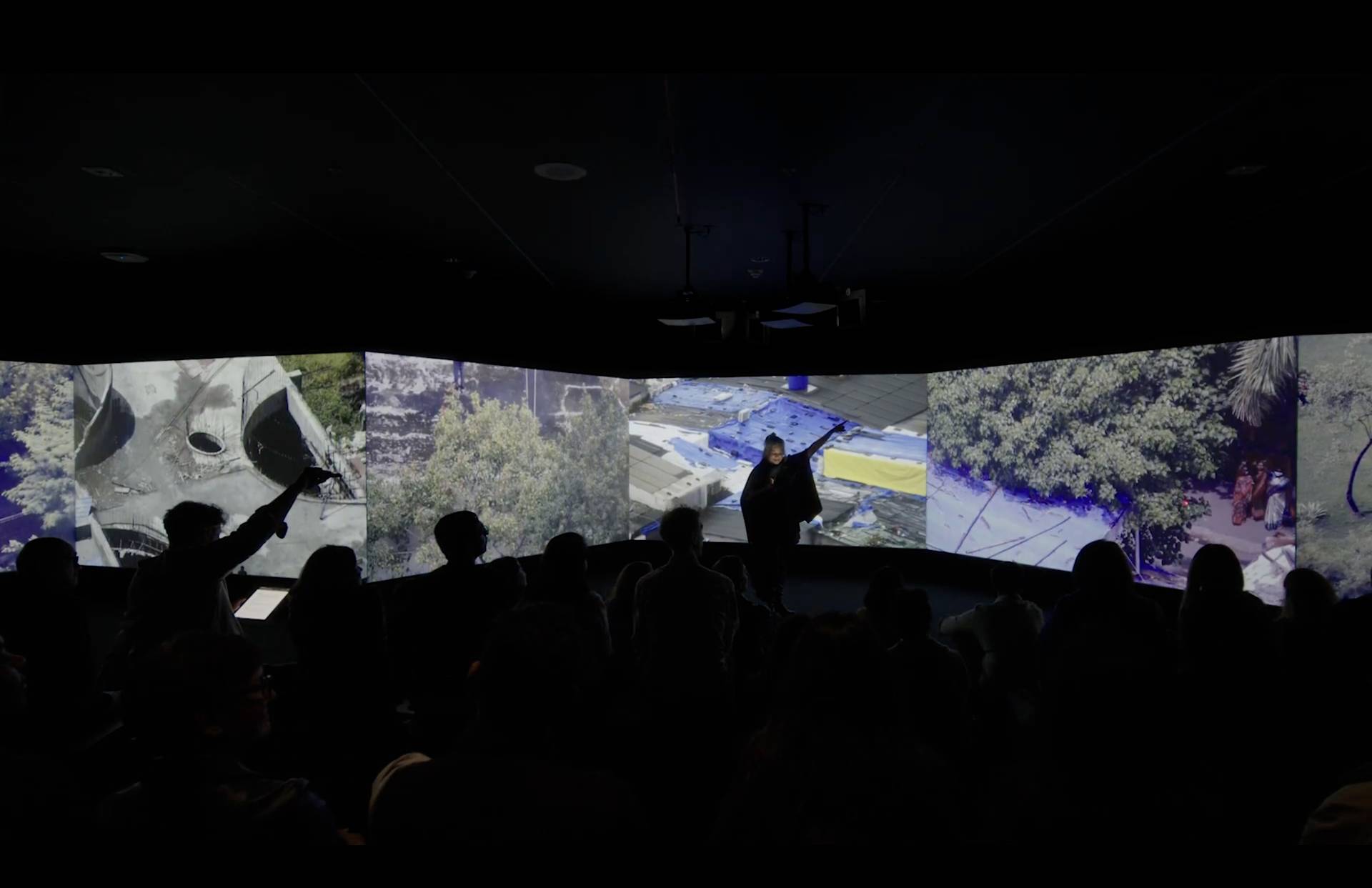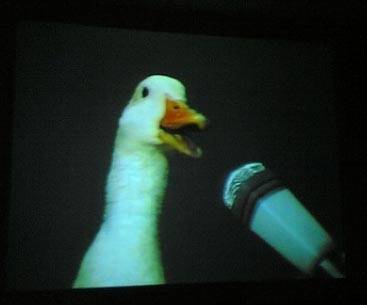
To See is To Change:
Nov. 14, 2008 - Nov. 15, 2008
A Parallax View of 40 Years of German Video Art.
Over two days, ten artists, critics and enthusiasts present a "recuration" of the 40 Years of German Video Art, a collection being circulated by the Goethe Institut. These respondents bring to the archive their own urgencies and preoccupations, and suggest that this "package" is not a sealed entity, and can be re-read as a history of encounter and entanglement between disciplines, geographies, schools of thought, agents and artforms.
The 2-day screening program will be held 14th-15th November, 2008.
at Jnanapravaha, and (on the same floor, opposite door) Gallery Chemould.
Still from Video 50, Robert Wilson, 1978.
The 40 Years of German Video Art (http://www.40jahrevideokunst.de) is a project initiated by The German Cultural Foundation in 2004 to digitize, restore and archive a "cultural heritage" that was seen to be slipping away, as video in older formats degenerated. After exhibitions in Bremen, Westfalen, Munich, Leipzig and Karlsruhe, this collection is now travelling internationally with the Goethe-Institut. A package in this form this suggests a certain stability in the category "German video art". At the same time its circulation opens up the material, and its context of production and thought; its "Germany", to review by diverse and sometimes unsolicited sources. It is our good fortune to be able to promote such activity. Sehen heißt ändern, to see is to change.
Schedule
Presentations and Screenings:
DAY 1. (6pm. Jnanapravaha)
Ranjit Hoskote will read against the grain of the account of video art in Germany proposed by this collection, to produce a more amplified sense of the German imagination on both sides of the wall. He notes the telling absence of a vibrant East German underground, including Super8 films. He also explores the problems of reading, especially when seemingly universal resources such as language, image and symbolism carry sharply differing valencies depending on the political contexts in which they are deployed.
1986 | As if Memories Could Deceive Me | Marcel Odenbach |17:35
1989 | Körper im Körper | Jörg Herold | 11:40
1983 | Geld | Malaria | 4:00
Mriganka Madhukaillya would like to investigate the construction of history through the use of narrative devices derived from cinema. Reflecting on the medium of video via recording and transportation devices (the camera / the train) allows us a way into German history as well as towards a broader understanding of migration/mobilty, memory and narration. This approach looks at video technology as a time-based medium revealing mnemonic and micro-political processes, in its archives.
1992|Transfer|Angela Melitopolous| 12: 23
2002 | Tehran 1380 | Solmaz Shahbazi, Tirdad Zolghadr| 45:00
2004 | Kurlichtspiele (Reminiszenz, 12. Dezember 1953) | Volker Eichelmann| 06:00
Kaushik Bhaumik explores the history of gender in the last forty years through its relationship with video, and posits that video art has reflected the breakdown of bounded notions of gender into a set of randomly distributed sense attributes across bodies that belie any stable gendered perceptions.
1969 | Land Art | Gerry Schum (short version)| Excerpts 10 mins
1974 | Tanz für eine Frau | Ulrike Rosenbach| 8 mins
1988 | Der Herzschlag des Anubis | Bettina Gruber, Maria Vedder| 5mins
2000 | Buffalo Billy + Milly | Rosemarie Trockel| 5: 45
DAY 2: (11 am, Gallery Chemould)
Nancy Adajania points to the work of Rebecca Horn and Valie Export to speak of the militarization of the body, and the performative insertion of the politicised female body in public space, with Vienna Actionism and the emergent women's movements of the 1960s as twin matrices. She also reflects on Wolf Vostell's deployment of techniques of 'de/collage' in the early 1960s in relation to television, undermining its rhetoric of communicative transparency and diluting its claim to truth-telling authority. She will contextualise Vostell as a Fluxus pioneer and demonstrate his concerns with abstraction, temporality and counter-cultural critique.
1975 | Berlin, Übungen in neun Stücken | Rebecca Horn| 40:00
1974 | Raumsehen und Raumhören | Valie Export| 05:00
1963 | Sun in your head | Wolf Vostell| 05:00 mins
Pre-Lunch Screening: 1978 | Video 50 | Robert Wilson| 52:00
LUNCH
Kabir Mohanty feels that the tremendously evolved film sensibility that we see in India both in terms of viewership and practice is narrowing, getting atrophied, and its renewal is a challenge to again both practitioners and viewers, and so this 40-year history is important to reconsider. He screens a selection of films, including a work by Gary Hill, and one of his own works.
2004 | The nuclear Football | Korpys / Löffler| 30:41 1989 | Site/Recite | Gary Hill | 04:30
Devdutt Trivedi traces the development of an aesthetic through video by analyzing its spaces, temporalities and emphases, also in contrast/ regard to film. Devdutt responds to Video 50 by screening another film, Hong Kong.
1999| Hong Kong (HKG) | Gerhard Holthuis (Netherlands) | 13:00 1999 | Phoenix Tapes | Christoph Girardet, Matthias Müller| Excerpts 1998 | Passage I | Heike Baranowsky| 3 mins
Rana Dasgupta offers a meditation on the "flash". Flashes of light or image occur with some frequency in avant garde film and video art. Does the flash have a history? Can we give meaning to the flash? From lightning to arc lights to nuclear explosions - a speculation.
DAY 2: (6 pm. Jnanapravaha)
Ashok Sukumaran traces the development of media art in the specific context of the ZKM, in relation to the abandoned promise of the "digital bauhaus", and links to both industrial design and actionist performance, as conceptual supports. These early negotiations with computers appear to have a certain sensible potential, where concepts such as "touch" and "tool" appear, briefly, as political entities.
Shaina Anand diagonally cuts through an array of works that deal with both utopias and dystopias of audiences and spectatorship. There is irreverence and interruption, vision but also naivety, determinism but also darkness. Looking back, what can we remember of these questions? Where can we stand today, in contradictory times of capital driven scarcity of digital 'art works' and endless circulation of information and images. What could be a productive distribution? What can be a withdrawal or 'absence'?
Excerpts:
1970 | Filz TV|Joseph Beuys.
1969 | TV as a Fireplace | Jan Dibbets.
1972 | Documenta der Leute | Telewissen.
1983 | Der Riese | Michael Klier.
and others not in the package.
Sebastian Lütgert presents Produktionsbedingungen --Conditions of Production, based upon a reading of Bei mir zu Dir (tv - low dunkel), 2002, by Judith Hopf and Stephan Geene. Production, as in the production of video, but also production of space. Conditions, as those in Berlin, and the passage of a rather large number of people through an extended period of time - and then again, the period of a space.
2002 | Bei mir zu Dir (tv - low dunkel) | Judith Hopf, Stephan Geene
Good Night Screening:
1984 | Good Morning, Mr. Orwell | Nam June Paik| 57:52
Notes on Presenters:
Nancy Adajania is a cultural theorist, art critic and curator. She was formerly Editor of Art India. Adajania studied Politics and Film, and has been working over the last decade to develop a critical framework for new media practices in India.
Shaina Anand is a filmmaker and video artist, working independently on 'expanded video' projects such as using cableTV, surveillance and tactical media forms, since 1997. Her work draws from a reconsideration of documentary ethics, and its forms. In 2008 she co-initiatied CAMP, as well as the PAD.MA video archive.
Kaushik Bhaumik is Vice President, Osian's - Connoisseurs of Art. He has published articles on Indian and World Cinema in various anthologies. He is co-editor of Visual Sense: A Cultural Reader due later this year from Berg Publishers, Oxford.
Rana Dasgupta is a British novelist based in Delhi. His first book, Tokyo Cancelled (2005) was a cycle of contemporary folktales about the experience of globalisation. His novel Solo will appear in spring 2009.
Ranjit Hoskote is a cultural theorist, poet and curator. He studied Politics, Literature and Aesthetics, and has been collaborating with Nancy Adajania towards a theory of 'critical transregionality'. Hoskote is co-curator of the 7th Gwangju Biennale (2008).
Sebastian Lütgert is a writer, programmer and artist who lives in Berlin.
Mriganka Madhukaillya teaches Communication Design at IIT, Guwahati and is co-founder of Desire Machine collective, an ensemble of practitioners working predominantly with new media, video and photography. They have recently initiated the artists-space Periferry, on a boat on the Brahmaputra.
Kabir Mohanty is filmmaker and video artist based in Mumbai.
Ashok Sukumaran studied architecture and media art, and now works as an artist and organiser. His work across art and technology has received several honours, most recently a Golden Nica at the Prix Ars Electronica, 2007. He is a co-initiator of CAMP, a space for artistic research, projects, residencies and events, in Mumbai.
Devdutt Trivedi is a cinephile who lectures on classical film theory and works at Osian's.
